Homeless too often given 'meaningless advice' by councils - MPs
- Published
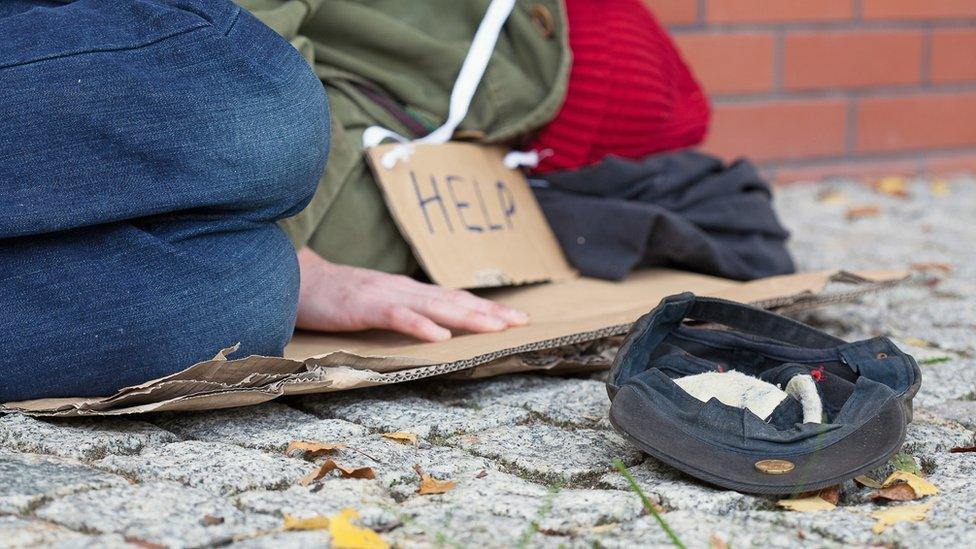
Homeless people are too often given meaningless and ineffectual advice by councils in England, MPs have said.
A Communities and Local Government Select Committee report, external found homeless people are too often "badly treated" by councils, saying they should have a legal duty to give meaningful support.
Homelessness is increasing and a new government plan is required, MPs added.
However, councils said they needed more money and powers, saying they "cannot tackle this challenge alone".
The committee received "too much evidence of councils and their staff treating homeless people in ways that are dismissive and at times discriminatory", MPs said.
The report urged the government to support the Homelessness Reduction Bill, external - proposed by the Conservative MP Bob Blackman in June - to impose tougher conditions on councils and force them to offer emergency accommodation for up to two months.
'Not acceptable'
Official figures published by the government show that local authorities approved 14,780 households' applications for homelessness assistance between 1 January and 30 March 2016.
This was up 9% on the same quarter in 2015.
However, the report warned that the statistics did not capture the full scale of homelessness, for example many "hidden homeless" who may be staying with friends or not have sought help.
The report said it was "not acceptable" that the level of support offered to vulnerable people who did seek help varied significantly across the country.
The scale of the problem called for a new action plan across multiple government departments - one that should see ministers monitor councils and identify those failing to provide good advice.
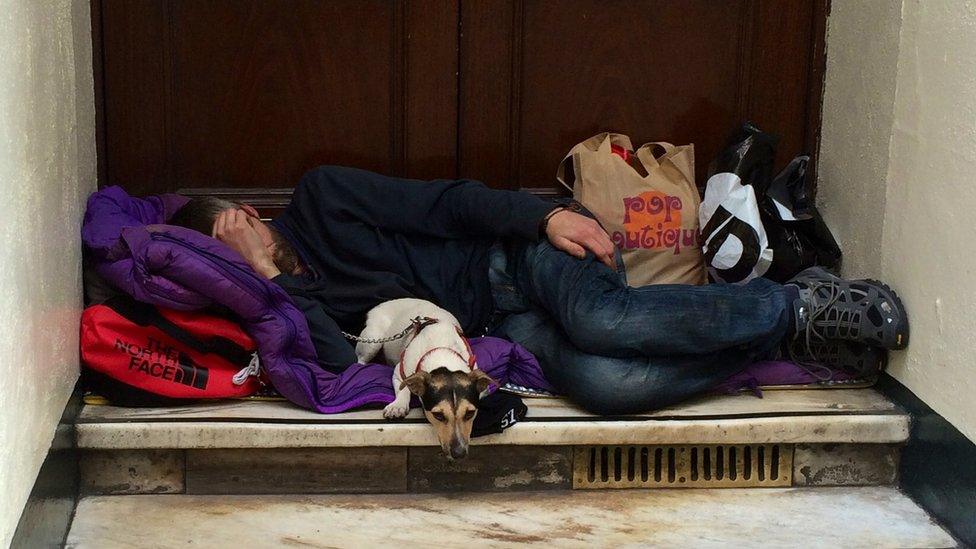
Other findings in the report include:
Further resources should be allocated to expand help for victims of domestic abuse
Welfare reforms have increased pressure on levels of homelessness
Recipients of housing benefit should get the option of having their money paid directly to their landlord to avoid getting into arrears
Committee chairman Clive Betts said: "No-one should be homeless in Britain today, but the reality is that more and more people find themselves on the streets, in night shelters or going from sofa to sofa to keep a roof over their heads."
The Labour MP acknowledged that councils faced significant funding pressures and legal obligations, but said he believed vulnerable people were "too often badly treated".
'Clarion call'
However, Nick Forbes, a vice-chairman at the Local Government Association, which represents dozens of councils across England and Wales, said "councils cannot tackle this challenge alone".
He said councils needed to be given funding and powers to bring together "local housing, health, justice, and employment partners" to tackle the issue.
Councils in England have a duty to secure accommodation for "unintentionally homeless households" who fall into a "priority need" category, according to government papers, external in the House of Commons library.
There is no duty on councils to secure accommodation for all homeless people.
The papers say: "There is no statutory duty to secure housing for homeless single people and couples without children, who are not deemed to be vulnerable for some reason."
Balbir Chatrik, of youth homelessness charity Centrepoint, said the government must "take more responsibility for all those seeking support - not just those it is legally obliged to help".
Jon Sparkes, of homelessness charity Crisis, said the report should be a "a clarion call for action".
A spokesman for the UK government said it was "considering how to improve services", including for mental health.
The level of "statutory homelessness" - a term used to describe people who are prioritised for assistance by local authorities - were less than half what it was in 2003-04, the spokesman added.
- Published27 April 2016
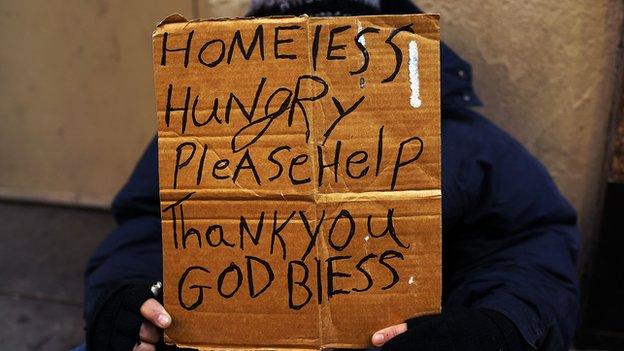
- Published25 April 2016
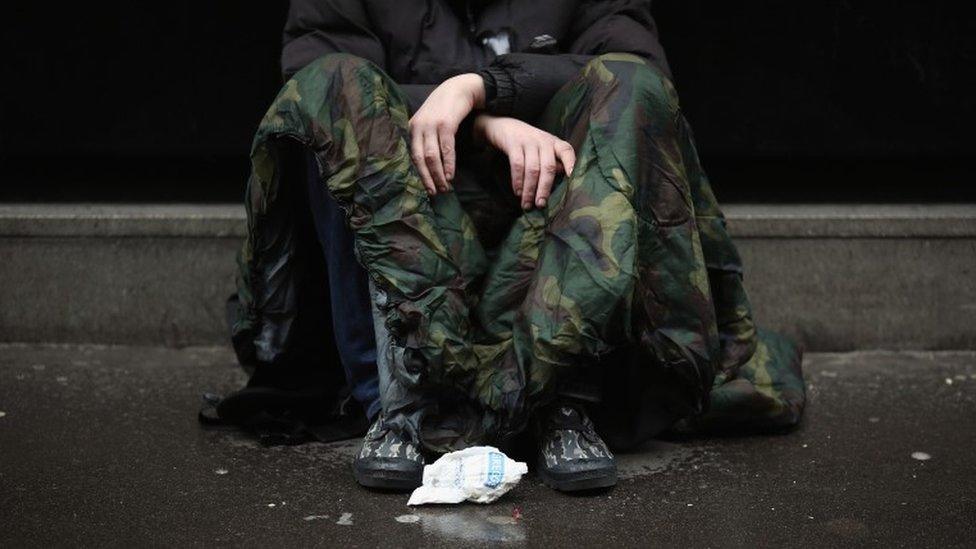
- Published30 March 2016
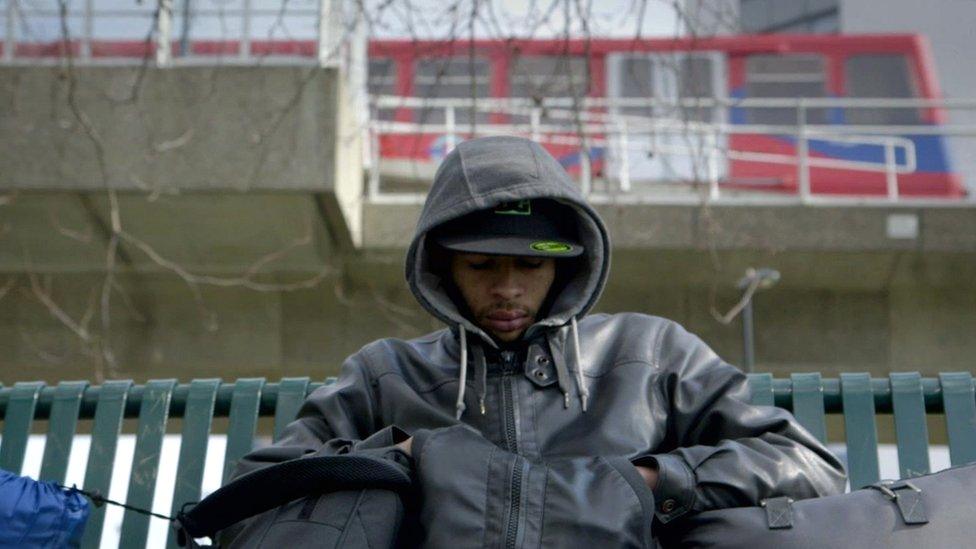
- Published1 March 2016
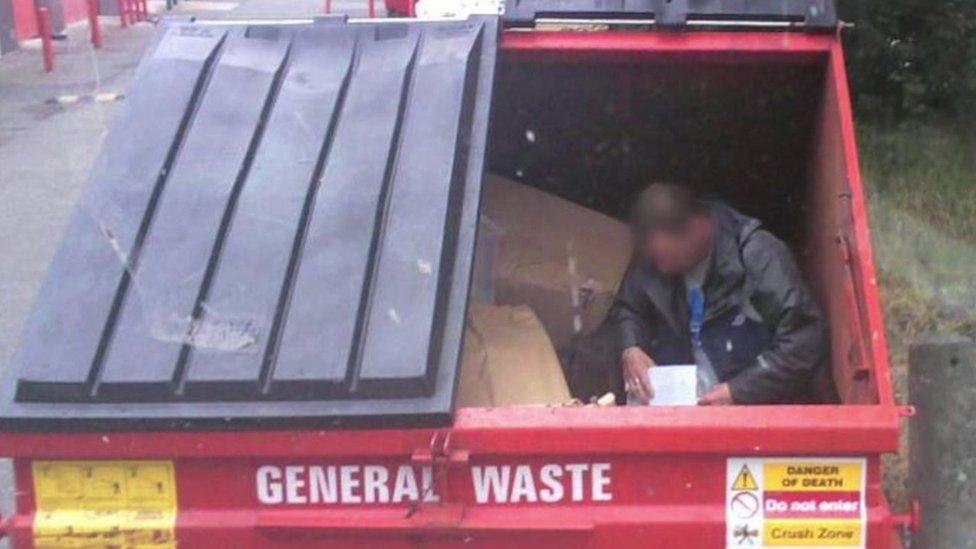
- Published17 August 2016
